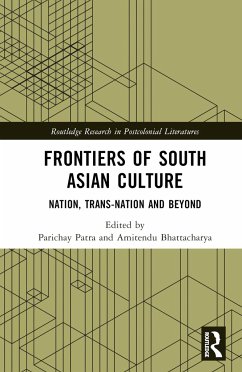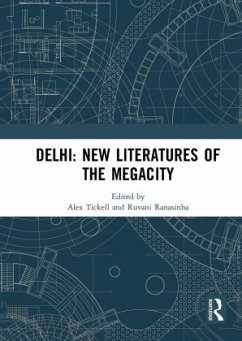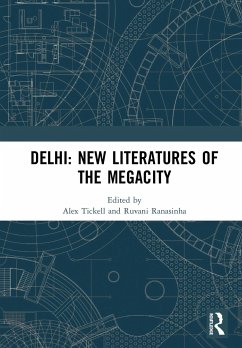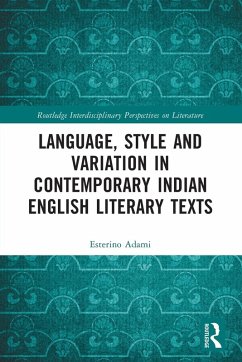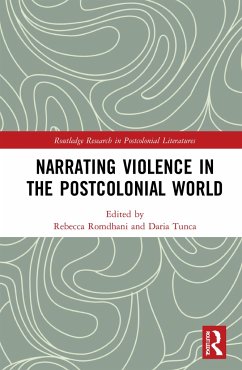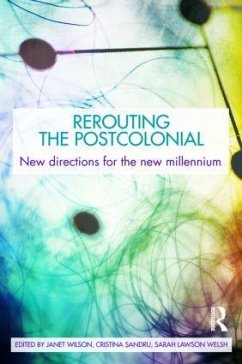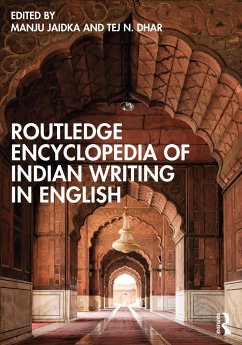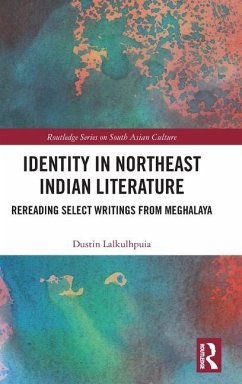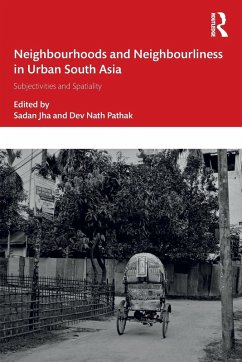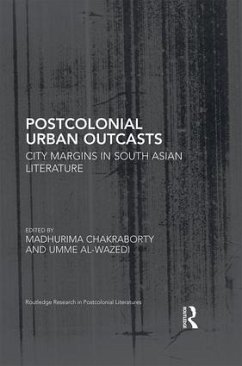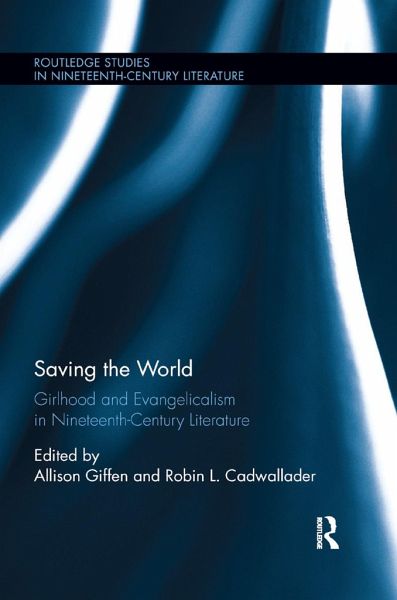
Postcolonial Urban Outcasts
City Margins in South Asian Literature
Herausgegeben: Chakraborty, Madhurima; Al-wazedi, Umme
Versandkostenfrei!
Versandfertig in 6-10 Tagen
53,99 €
inkl. MwSt.

PAYBACK Punkte
27 °P sammeln!
Extending current scholarship on South Asian Urban and Literary Studies, this volume examines the role of the discontents of the South Asian city. The collection investigates how South Asian literature and literature about South Asia attends to urban margins, regardless of whether the definition of margin is spatial, psychological, gendered, or sociopolitical. That cities are a site of profound paradoxes is nowhere clearer than in South Asia, where urban areas simultaneously represent both the frontiers of globalization as well as the deeply troubling social and political inequalities of the g...
Extending current scholarship on South Asian Urban and Literary Studies, this volume examines the role of the discontents of the South Asian city. The collection investigates how South Asian literature and literature about South Asia attends to urban margins, regardless of whether the definition of margin is spatial, psychological, gendered, or sociopolitical. That cities are a site of profound paradoxes is nowhere clearer than in South Asia, where urban areas simultaneously represent both the frontiers of globalization as well as the deeply troubling social and political inequalities of the global south. Additionally, because South Asian cities are defined by the palimpsestic confluence of, among other things, colonial oppression, anticolonial nationalism, postcolonial governance, and twenty-first century transnational capital, they are sites where the many faces of empowerment and disempowerment are elaborated. The volume brings together essays that emphasize myriad critical approaches-geospatial, urban-theoretical, diasporic, subaltern, and others. United in their critical empathy for urban outcasts, the chapters respond to central questions such as: What is the relationship between the politico-economic narratives of globally emerging South Asian cities and the dispossessed? How do South Asian cities stand in relationship to the nation and, conversely, how might South Asians in diaspora construct these cities within larger narratives of development, globalization, or as sources of authentic ethnic identities? How is the very skeleton-the space, the territory-of South Asian cities marked with and by exclusionary politics? How do the aesthetic and formal choices undertaken by writers determine the potential for and limit to emancipation of urban outcasts from their oppressive circumstances? Considering fiction, nonfiction, comics, and genre fiction from India, Pakistan, Bangladesh, and Sri Lanka; literature from the twentieth and the twenty-first century; and w





